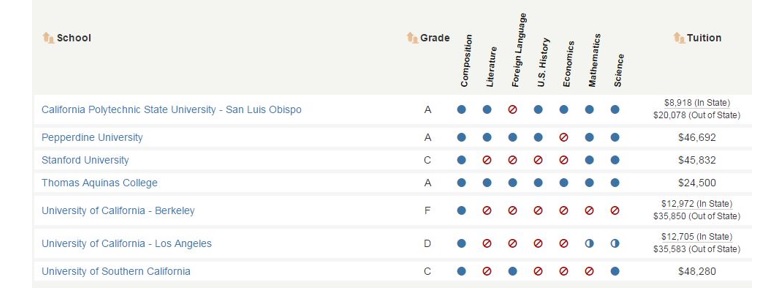WASHINGTON, D.C.—Students at renowned California universities like Stanford and UC–Berkeley can graduate with vast gaps in their skills and knowledge according to a national report called What Will They Learn?, released by the American Council of Trustees and Alumni (ACTA). ACTA is a nonprofit organization dedicated to academic excellence, academic freedom and accountability in higher education.
What Will They Learn? evaluates over 1,100 public and private liberal arts colleges and universities based on their requirement of seven core subjects: composition, literature, intermediate-level foreign language, U.S. government or history, economics, math and science. Schools are issued a grade from “A” to “F.”

The UC school system received low marks for its general education curriculum. Stanford and USC students can graduate without ever taking even a single course in literature, economics or U.S. government to graduate.
However, California is home to three schools that receive an “A” rating: California Polytechnic State University-San Luis Obispo, Pepperdine University and Thomas Aquinas College. Only 24 schools in the country earn an “A” for requiring at least six core subjects.
Project director Dr. Michael Poliakoff observed, “Many schools with major name recognition set minimal requirements for core skills and knowledge. Some institutions that are currently less well known offer students a better chance to gain the well-rounded education so vital for success in career and community.”
To see the full California report card, visit www.whatwilltheylearn.com.
###
CONTACT:
Molly Mitchell
Director of Communications
American Council of Trustees and Alumni
mmitchell@goacta.org 202.467.6787
